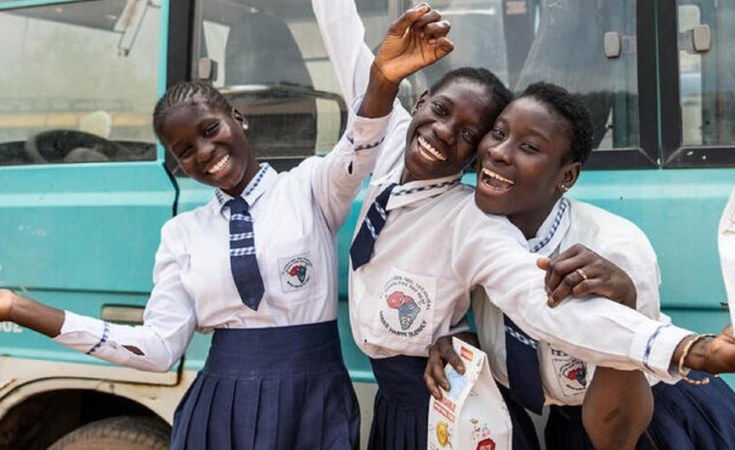As a young girl of 13, the arrival of my first period filled me with an overwhelming sense of shame. I vividly recall an incident in my classroom when one of my classmates accidentally stained her uniform with period blood.
The boys erupted in laughter, mercilessly mocking her. This girl was exceptionally bright and consistently excelled in her studies. To this day, I wonder if her embarrassing moment was due to a lack of awareness about her menstrual cycle or simply because she couldn't afford a pad.
The aftermath was disheartening--she faced days of judgment and scrutiny, despite her remarkable academic achievements. Witnessing this injustice reinforced the deep-rooted shame associated with discussing periods, especially when boys would make crude remarks, belittling our experiences. It felt as though their mockery stemmed from a place of threatened masculinity or a desire to assert dominance.
But the reality of period poverty remains stark for many girls in Rwanda today. Shockingly, approximately 20 per cent of schoolgirls, especially those in rural areas, miss up to 50 days of school each year due to the unavailability of menstrual products.
This distressing statistic, revealed in a 2020 study supported by the World Bank, unveils the harsh reality of period poverty. The memory of my brilliant classmate struggling in class continues to haunt me. I cannot help but wonder how many other girls face similar challenges, their academic potential stifled by the lack of access to menstrual hygiene products.
While it is commendable that the Rwandan government has taken steps to exempt Value Added Tax (VAT) on pads, it is imperative that this policy be fully implemented without delay.
In a world that upholds the significance of choice as a fundamental right, it is essential for the government to extend VAT exemptions to all period products, including re-usable pads, tampons, and menstrual cups--an option I personally favour, sustainable and environmentally friendly.
For instance, one menstrual cup can last for 10 to 15 years, enabling girls to attend school without interruption from their first period until they complete their university education.
We must address period poverty as an urgent and collective societal issue. Boys should learn how to treat their female classmates with respect and understanding. Teaching them that menstruation is a natural process, and instead of mocking girls, they can make them feel comfortable and free from shame.
This is an opportunity to teach positive masculinity. Together, boys and girls can advocate eradicating period poverty, recognising it as an issue that concerns all of them and their collective future.
Empowering girls to remain in school necessitates not only providing access to education but also ensuring their menstrual hygiene needs are met. By eliminating the barriers created by period poverty and boosting girls' confidence, we enable them to excel academically and become influential leaders of tomorrow.
It is incumbent upon us to make period poverty an urgent priority, transforming it from a mere topic of discussion into a tangible reality that improves the lives of countless girls in Rwanda.
Period poverty is a deeply personal and emotionally charged issue that affects the lives of girls across the nation. Together, let us break the silence, dismantle the barriers, and forge a path towards a future where no girl is held back by the burden of period poverty.


